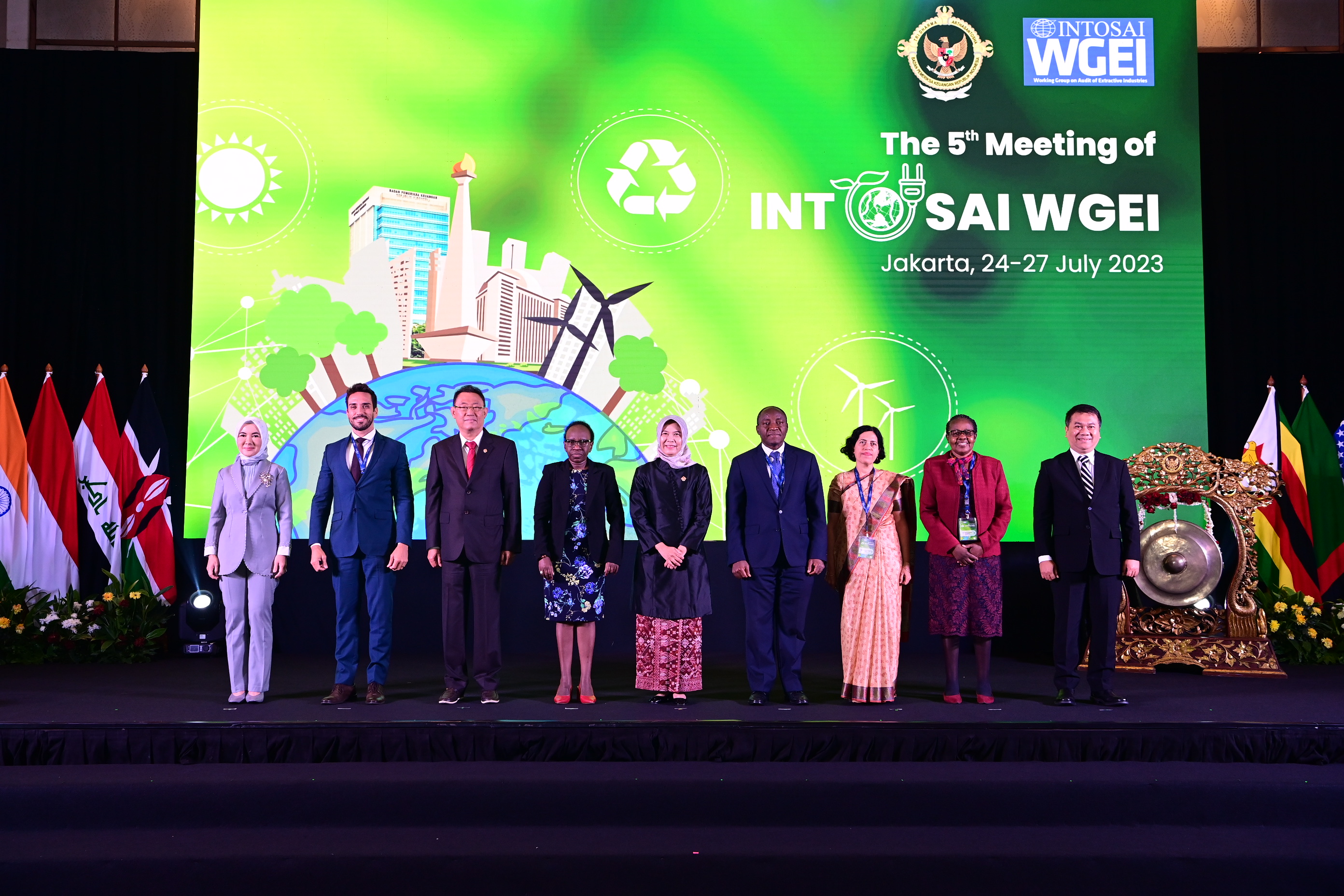TCU to carry out international research on audit institutions' efforts in energy transition
This study maps trends associated with the impacts of the energy transition on the extractive industries and analyzes how supreme audit institutions (SAIs) monitor the performance of governments on the issue
Por Secom

From July 24 to 27, representatives of the Brazilian Federal Court of Accounts (TCU) attended the assembly of the INTOSAI WGEI (International Organization of Supreme Audit Institutions Working Group on Audit of Extractive Industries). This group specializes in issues related to extractive industries, and the theme of the meeting held in Jakarta, Indonesia, was global energy transition.
In a video message recorded for WGEI members, the president of TCU and chair of INTOSAI, Minister Bruno Dantas, highlighted that auditing government policies and investments associated with energy transition is a complex task, especially from an international perspective. He pointed out that “diverse regulatory environments, varying methodologies, and different political and economic scenarios can pose potential obstacles. However, these challenges also offer opportunities. Overcoming them requires the evolution of our strategies, adopting a holistic and global approach to energy responsibility.”
According to Dantas, the environmental footprint of extractive industries requires a global shift towards sustainable practices. He said, "SAIs can lead the way, sharing best audit practices, resources and knowledge to oversee the regulation of these industries and promote sustainability.”
At the opening ceremony of the event, the head of the Department of External Control for Energy and Communications (SecexEnergia), Alexandre Figueiredo, recalled that "SAIs have the potential to stimulate energy efficiency and diversification of the energy matrix in a scenario where the expansion of renewable sources is fundamental not only to reduce greenhouse gas emissions, but also to promote the economic and social development of countries.”

TCU to carry out international research
During the program, the TCU delegation presented a survey prepared by SecexEnergia to assess the efforts in energy transition undertaken by the supreme audit institutions (SAIs) that make up the group. This study aims to map regional and global trends associated with the impacts of energy transition on the extractive industries of WGEI member countries and how SAIs assess government action on the issue. The extractive industry explores oil, gas and mining.
The research carried out by SecexEnergia will analyze aspects such as the mandate of SAIs to act on the subject in their countries, the audits carried out, the main problems existing in the countries evaluated, how SAIs communicate the work done, regional priorities, barriers to the exercise of control in extractive industries, energy transition trends in member countries, and problems and solutions to issues.
The results should be compiled by the end of the year and will serve to identify challenges, opportunities for collaboration and best practices, develop capacity-building programs, and establish parameters related to energy transition.
In the panel "The role of SAIs in the energy transition," SecexEnergia advisor Guilherme Pereira Souto reinforced the role of control institutions in collaborating towards a more equitable energy transition and sustainable development. He said, "this can be achieved by supporting governments in identifying risks and opportunities, increasing governance and transparency to help minimize the environmental and social impacts of extractive industries on communities.”
During the meeting, the participants also discussed and approved the WGEI Work Plan 2023-2025.
What is the WGEI?
The Working Group on Audit of Extractive Industries studies extractive industries and develops best practices for audits in the oil, natural gas and solid minerals sectors. The aim is to promote good governance and sustainability objectives for SAIs in the forty-six member countries.
The Working Group aims to facilitate knowledge sharing in extractive industry sector audits among SAIs and as a point of contact with external stakeholders. It also works to strengthen the promotion of accountability and transparency by developing documents, including audit guidelines, experiences, industry standards, research papers, and reports from organizations working on extractive sector governance.
The Brazilian Federal Court of Accounts, one of the founders of the group, is a member of the WGEI steering committee.